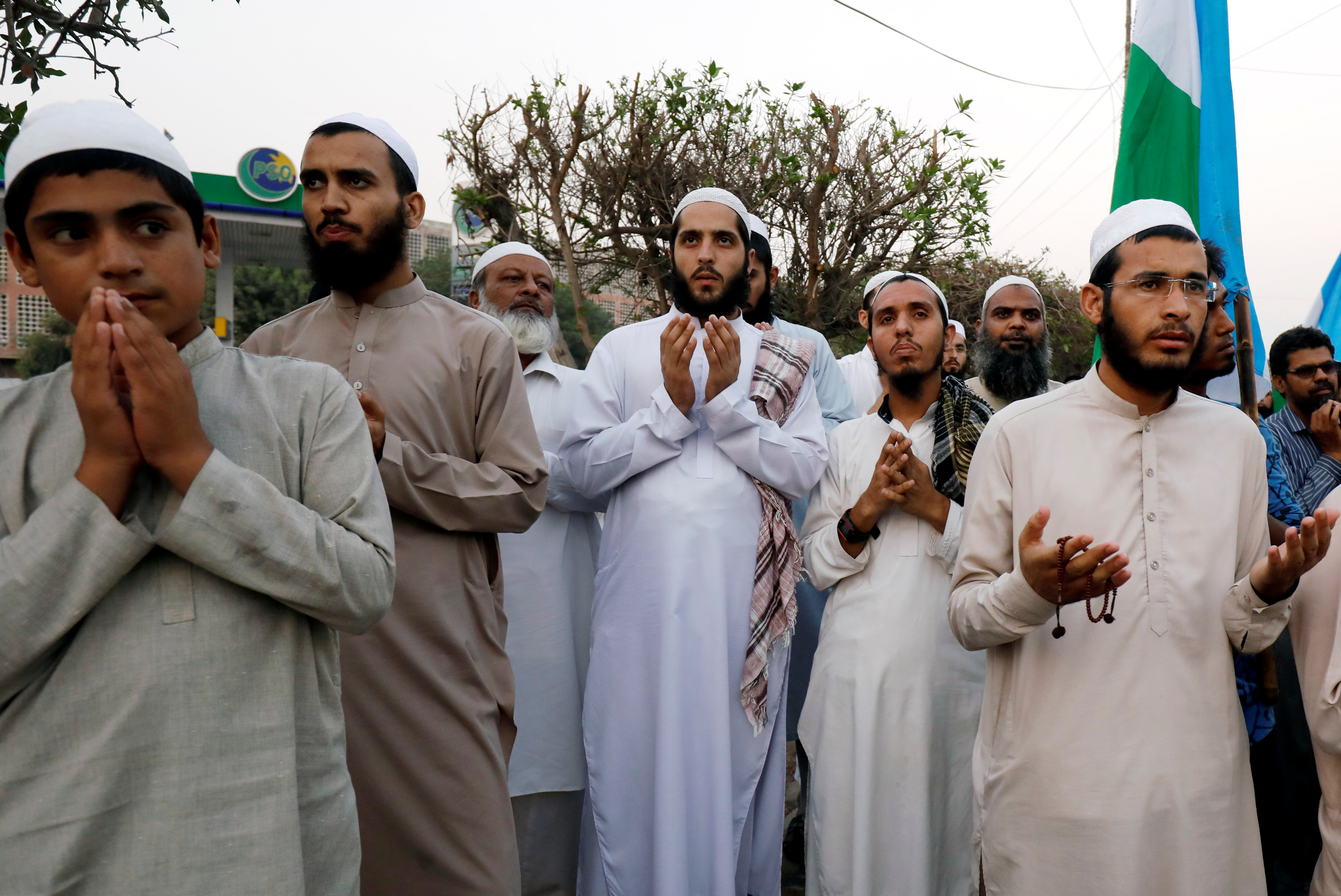
By Babak Dehghanpisheh
GENEVA (Reuters) – More Iranians are using social media to vent anger at what they see as the corruption and extravagance of a privileged few, while the majority struggles to get by in an economy facing tighter U.S. sanctions.
The country has been hit by a wave of protests during the last year, some of them violent, but as economic pressures rise, people are increasingly pointing fingers at the rich and powerful, including clerics, diplomats, officials and their families.
One person channeling that resentment is Seyed Mahdi Sadrossadati, a relatively obscure cleric who has amassed 256,000 followers on his Instagram account with a series of scathing posts aimed at children of the elite.
In one recent post, he blasted the “luxury life” of a Revolutionary Guards commander and his son, who posted a selfie online in front of a tiger lying on the balcony of a mansion.
Openly criticizing a well-known member of the powerful military unit that answers to Supreme Leader Ayatollah Ali Khamenei is in itself an unusual act of defiance.
“A house tiger? What’s going on?” Sadrossadati wrote. “And this from a 25-year-old youth who could not gain such wealth. People are having serious difficulty getting diapers for their child.”
The Iranian rial currency has hit 149,000 to the U.S. dollar on the black market used for most transactions, down from around 43,000 at the start of 2018, as U.S. President Donald Trump vowed to pull out of the nuclear deal between Tehran and world powers aimed at curbing its nuclear program.
That has sent living costs sharply higher and made imports less accessible, while the threat of financial punishment from the United States has prompted many foreign companies to pull out of Iran or stay away.
The situation could get worse, as additional sanctions come into force this week.
“SULTAN OF COINS”
Wary of growing frustration over the relative wealth of a few among the population of 81 million, Khamenei has approved the establishment of special courts focused on financial crimes.
The courts have handed out at least seven death sentences since they were set up in August, and some of the trials have been broadcast live on television.
Among those sentenced to death was Vahid Mazloumin, dubbed the “sultan of coins” by local media, a trader accused of manipulating the currency market and who was allegedly caught with two tons of gold coins, according to the Iranian Students’ News Agency (ISNA).
The tough sentences have not been enough to quell frustration, however, with high profile officials and clerics in the firing line.
“Because the economic situation is deteriorating, people are looking for someone to blame and in this way get revenge from the leaders and officials of the country,” said Saeed Leylaz, a Tehran-based economist and political analyst.
Washington is likely to welcome signs of pressure on Iran’s political and religious establishment, as it hopes that by squeezing the economy it can force Tehran to curb its nuclear program and row back on military and political expansion in the Middle East.
Public anger among Iranians has been building for some time.
Demonstrations over economic hardships began late last year, spreading to more than 80 cities and towns and resulting in at least 25 deaths.
CLERICS
In addition to his written contributions, Sadrossadati has posted videos of debates between himself and some of those he has criticized.
In one, he confronted Mehdi Mazaheri, the son of a former central bank governor who was criticized online after a photograph appeared showing him wearing a large gold watch.
In a heated exchange, Sadrossadati shouted: “How did you get rich? How much money did you start out with and how much money do you have now? How many loans have you taken?”
Mazaheri, barely able to get in a reply, said he would be willing to share documents about his finances.
Children of more than a dozen other officials have been criticized online and are often referred to as “aghazadeh” – literally “noble-born” in Farsi but also a derogatory term used to describe their perceived extravagance.
High-profile clerics have also been targeted.
Mohammad Naghi Lotfi, who held the prestigious position of leading Friday prayers at a mosque in Ilam, west Iran, resigned in October after he was criticized on social media for being photographed stepping out of a luxury sports utility vehicle.
Facebook posts labeled Lotfi a hypocrite for highlighting ways that ordinary Iranians could get through the economic crisis during his speeches. The outcry was a major factor in his decision to resign from a post he had held for 18 years.
“The hype that was presented against me in this position … made me resign, lest in the creation of this hype the position of the Supreme Leader of the Islamic Revolution be damaged,” Lotfi told state media after stepping down.
“The issue of the vehicle … was all lies that they created in cyberspace,” he added.
He was one of at least four clerics in charge of Friday prayers who have resigned in the last year after being accused on social media of profligacy or financial impropriety.
(Editing by Mike Collett-White)

















